ARGENTINIAN AVANT-GARDE ICON THE CASA SOBRE EL ARROYO AWARDED 2024 WORLD MONUMENTS FUND/KNOLL MODERNISM PRIZE
The 1940s architectural marvel will receive the distinguished accolade following its restoration by the Ministerios de Cultura y de Obras Públicas de Argentina y Municipalidad de Mar del Plata
A recognition to the conservation project at the site and a tribute to the life of the late esteemed French architect Jean-Louis Cohen will take place during a discussion and Q&A event held at Black Rock
World Monuments Fund (WMF) announces the Ministerios de Cultura y de Obras Públicas de Argentina y Municipalidad de Mar del Plata (Ministries of Culture and Public Works of Argentina and the Municipality of Mar del Plata) as the winner of the 2024 World Monuments Fund/Knoll Modernism Prize, recognizing the commission’s thoughtful and detailed conservation of la Casa sobre el Arroyo (the House on the Stream).
The combined value of WMF’s commitment to the conservation of important cultural icons and Knoll’s ethos in using modern sustainable design to connect people in meaningful ways inspired the creation of this award.
The biennial prize, which celebrates architects, designers, and preservationists who have demonstrated innovative solutions to preserve or restore threatened modern architecture, will be presented during a panel discussion dedicated to the impact of the Argentinian modernist movement on February 27, 2024. Learn more and register here.
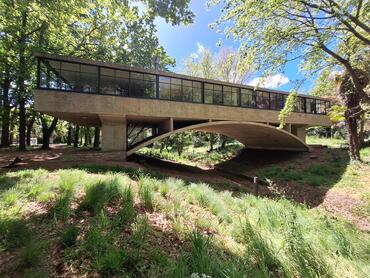
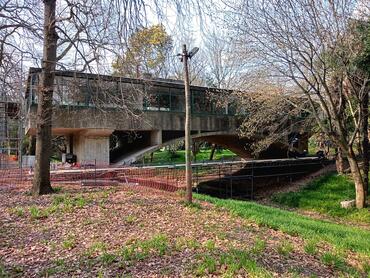
WORLD MONUMENTS FUND/KNOLL MODERNISM PRIZE 2024 JURY MEMBERS
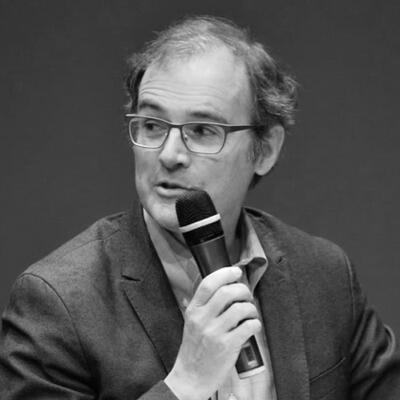
Barry Bergdoll, Chairman
Meyer Schapiro Professor of Art History and Archaeology
Columbia University; New York, NY

Courtney J. Martin
Director of the Yale Center for British Art
Yale University, New Haven, CT

Dietrich Neumann
Professor of the History of Modern Architecture and Director, Urban Studies
Department of the History of Art and Architecture
Brown University; Providence, RI

Karen Stein
Critic, Architectural Advisor, and Executive Director of the
George Nelson Foundation; New York, NY

Mabel O. Wilson
Nancy and George Rupp Professor of Architecture,
Planning and Preservation, a Professor in African American and African Diasporic Studies, and the
Director of the Institute for Research in African American Studies (IRAAS) at Columbia University; New York, NY

Susan Macdonald
Head, Buildings and Sites
The Getty Conservation Institute; Los Angeles, CA

Theo Prudon
President, Docomomo US and Adjunct Professor of Historic Preservation
Columbia University and Pratt Institute; New York, NY
IN MEMORIAM
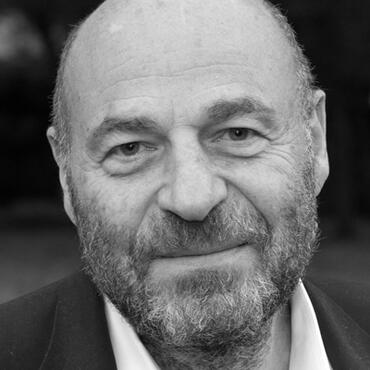
WMF was deeply saddened to learn of the passing of juror Jean-Louis Cohen in August of 2023. He was a member of the prize jury since its first cycle in 2008 and will be irreplaceable.
To read our full statement on the loss of our dear colleague, click here.
Previous WMF/Knoll Modernism Prize Winners
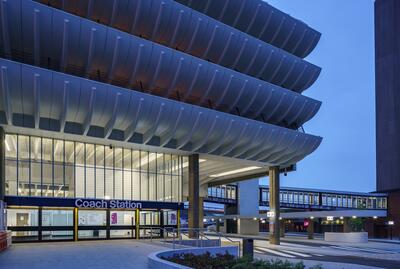
2021: Preston Bus Station
John Puttick Associates was awarded the 2021 World Monuments Fund/Knoll Modernism Prize, recognizing its thoughtful conservation of Preston Bus Station, located in Preston, UK, a civic monument of central importance that serves as a hub for mass transit.
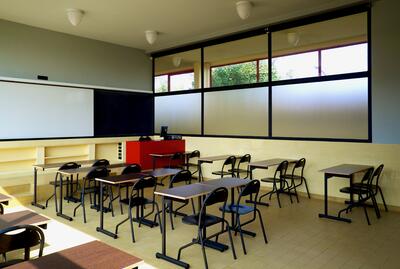
2018: Karl Marx School
The 2018 World Monuments Fund/Knoll Modernism Prize was awarded to Christiane Schmuckle-Mollard for the preservation of the Karl Marx School.
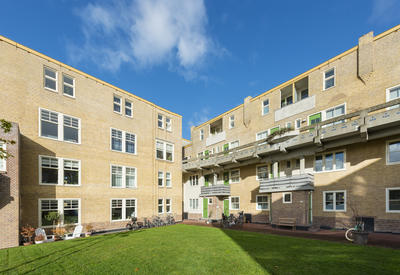
2016: Justus van Effen Complex
The 2016 World Monuments Fund/Knoll Modernism prize was awarded to Molenaar & Co. architecten, Hebly Theunissen architecten, and landscape architect Michael van Gessel for the preservation and rehabilitation of the Justus van Effen complex in Rotterdam, the Netherlands.
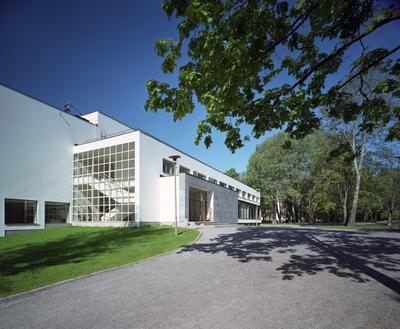
2014: Viipuri Library
The 2014 World Monuments Fund/Knoll Modernism Prize was awarded to the Finnish Committee for the Restoration of Viipuri Library with the Central City Alvar Aalto Library in Vyborg. This restoration project, an international partnership, lasted from 1992 to 2013.
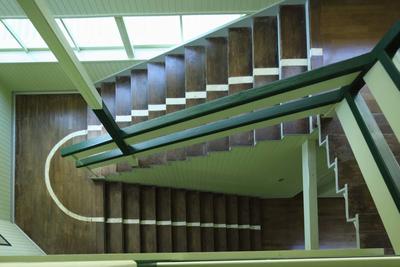
2012: Hizuchi Elementary School
The 2012 World Monuments Fund/Knoll Modernism Prize was awarded to the Architectural Consortium for Hizuchi Elementary School, for its impeccable restoration of Hizuchi Elementary School in Yawatahama City, Japan. Following serious damage from a 2004 typhoon, the school had been the center of a two-year debate over whether to demolish or preserve the structure.
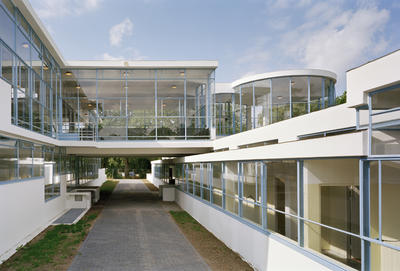
2010: Zonnestraal Sanatorium
The 2010 World Monuments Fund/Knoll Modernism Prize was awarded to Bierman Henket Architecten and Wessel de Jonge Architecten for their exemplary restoration of the Zonnestraal Sanatorium (designed 1926-28; completed 1931), a little-known but iconic modern structure in Hilversum, the Netherlands.
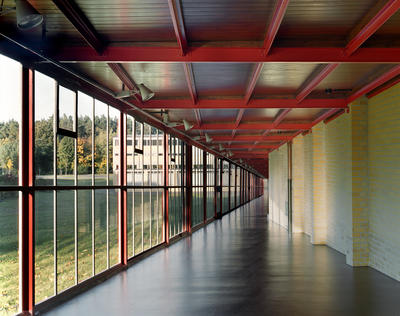
2008: ADGB Trade Union School
The 2008 World Monuments Fund/Knoll Modernism Prize was awarded to Brenne Gesellschaft von Architekten mbH, headed by Winfried Brenne and Franz Jaschke, for their restoration of the Bauhaus-designed ADGB Trade Union School in Bernau, Germany.
Forward-thinking. Experimental. Bold. Progressive. Innovative. Once recognized for these defining characteristics, significant modern structures around the world often fall victim to material deterioration, perceived obsolescence, and public apathy. These threats repeatedly result in inappropriate alterations or demolition. As many of these modern buildings are too young to qualify for landmark designation and protection, the need for preservation and increased public awareness of these unique resources is urgent.
WMF launched the biennial World Monuments Fund/Knoll Modernism Prize with founding sponsor Knoll in 2008 to recognize the individuals and organizations that preserve our modern built heritage through pioneering architectural and design solutions. The prize honors contemporary architects and preservationists whose work ensures sustainable futures for at-risk modern heritage.
The prize is part of WMF’s broader programming that addresses these challenges facing modern sites through advocacy, education, and conservation, including the World Monuments Watch. The prize stemmed from WMF’s Modernism at Risk initiative, created in 2006 in response to the increasing threats to buildings representative of the modern movement.
The World Monuments Fund/Knoll Modernism Prize recognizes outstanding physical interventions to preserve modern heritage. Projects that enhance a site’s architectural, economic, and environmental sustainability while engaging and benefiting local stakeholders are encouraged.

